Kaigo Café—Japan’s Largest Informal Care Professional Network
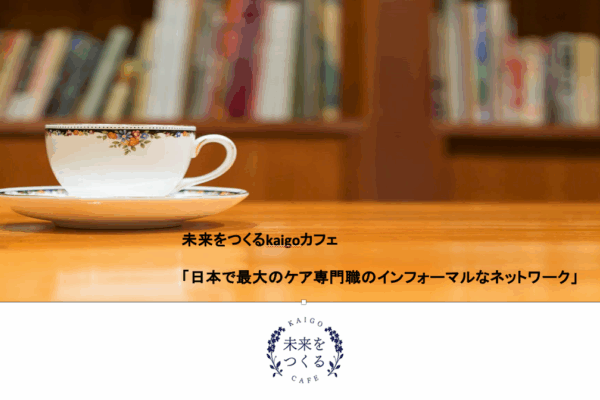
Kaigo Café is a professional, multidisciplinary, offline and online network that has been carrying out grassroots activities throughout Japan since 2012 that allow participants from all aspects of the medical and nursing care industry—regardless of their credentials or status—to talk freely and empower one another to continuously improve elder care.
Older People Take the Lead! Passing on the Vitality of the Region
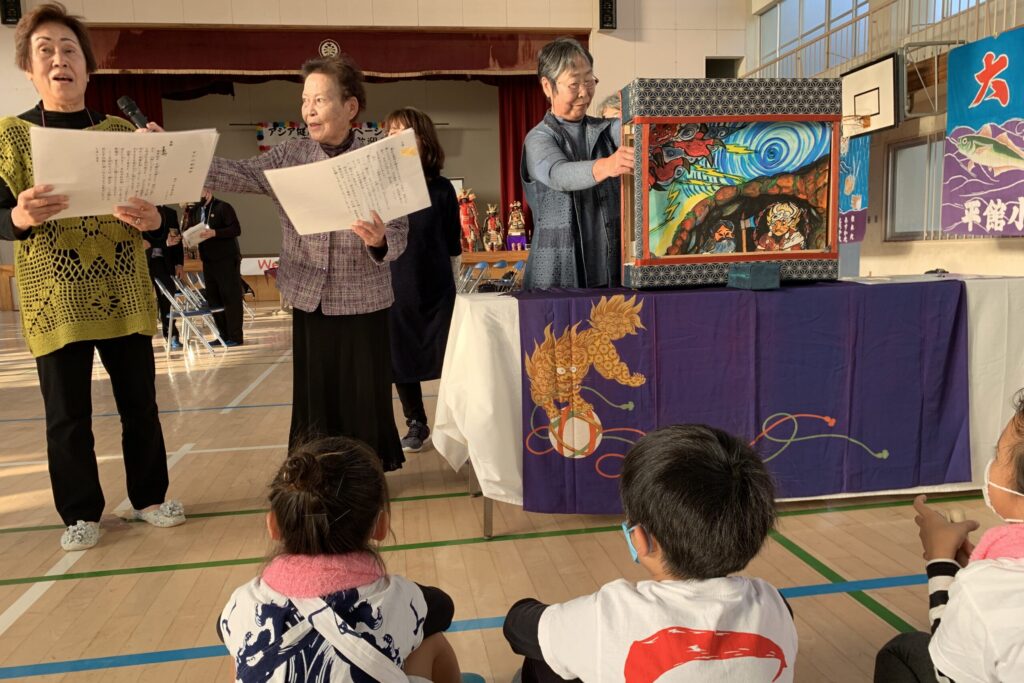
The Hedate Tea Room was established to coordinate and promote cooperation among various local organizations. This group, led from the bottom up and relying primarily on volunteers, has revitalized activities in the community, holding intergenerational events that pass on the stories and traditions of the region and give a sense of purpose to the older residents.
IM-OK Project
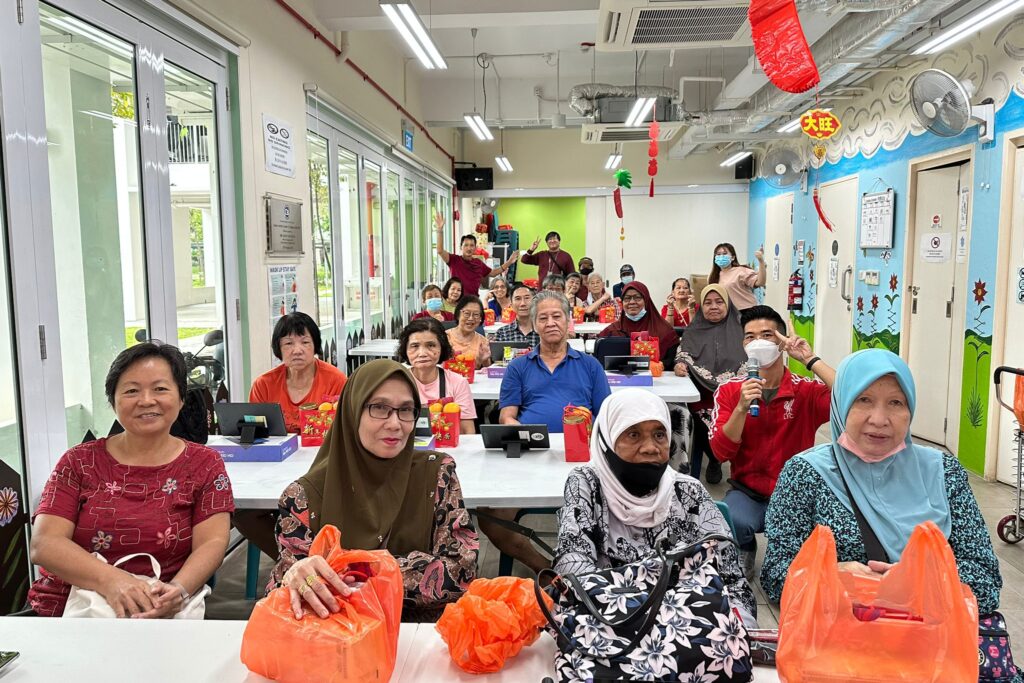
To combat social isolation, the Lions Befrienders Service Association (LBSA) created an easy-to-use elderly-friendly tablet device that lets users monitor and report their daily wellbeing. Pushing an “I am OK”button lets people know they are alright, and any missed check-ins alert family or LBSA volunteers to confirm the person’s safety. The tablet offers entertainment, learning, and health-related functions as well.
Micro-Jobs Program for Older People

The Micro-Jobs Program lets healthy, active seniors assist frailer peers in their neighborhood through tasks such as meal delivery, medication reminders, or accompanying people to doctor’s appointments. The tasks are “bite-size,” so there is a low barrier to entry. Participants are trained and receive a modest allowance in return for the tasks. More importantly, they feel a sense of purpose and engagement with their community.
Go Bike Project—Ronda Kalusugan Program
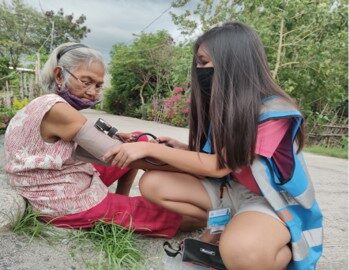
Go Bike trains young volunteers to become community responders—“Go Bikers”—in times of emergencies and disasters, and to conduct regular health monitoring for older people (the Ronda Kalusugan Program), which includes blood pressure and blood sugar monitoring. They use bicycles equipped with first-aid kits, medicine, blood pressure apparatus, random blood sugar checking kits, and disaster response equipment that enables them to help those in their communities.
YoungHappy Plus—Online Community Platform to Enhance the Quality of Life for Urban Seniors
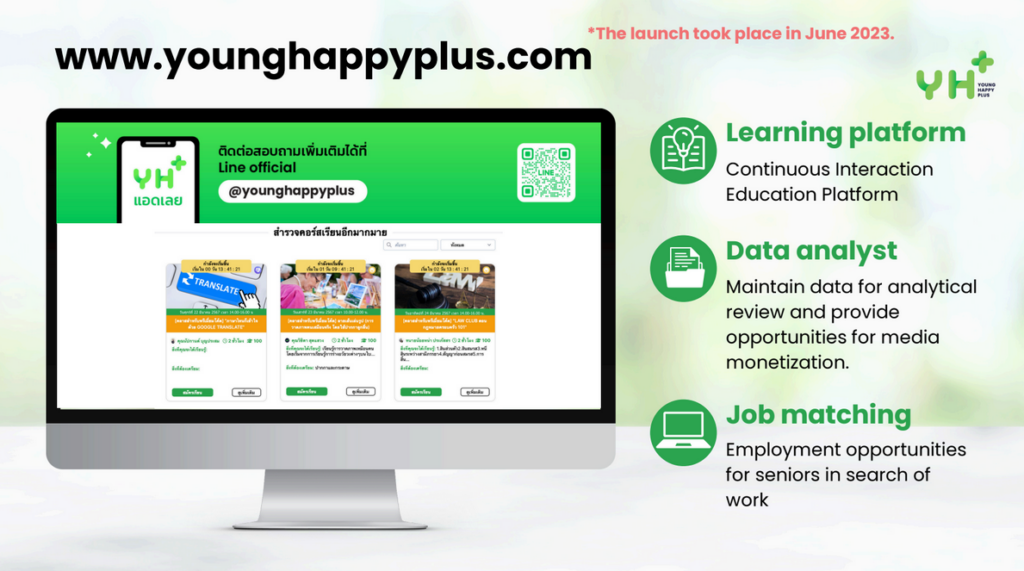
YoungHappy is a social enterprise providing in-person and digital solutions to promote social interaction, physical activity, and mental stimulation for urban elders. They create “Happy Spaces,” community hubs located in shopping malls, let members join their peers for art workshops, health talks, exercise classes, etc., while their “YoungHappy Plus” platform (via app or LINE), offers virtual classes on digital literacy, health, and more.
Ready Senior Project
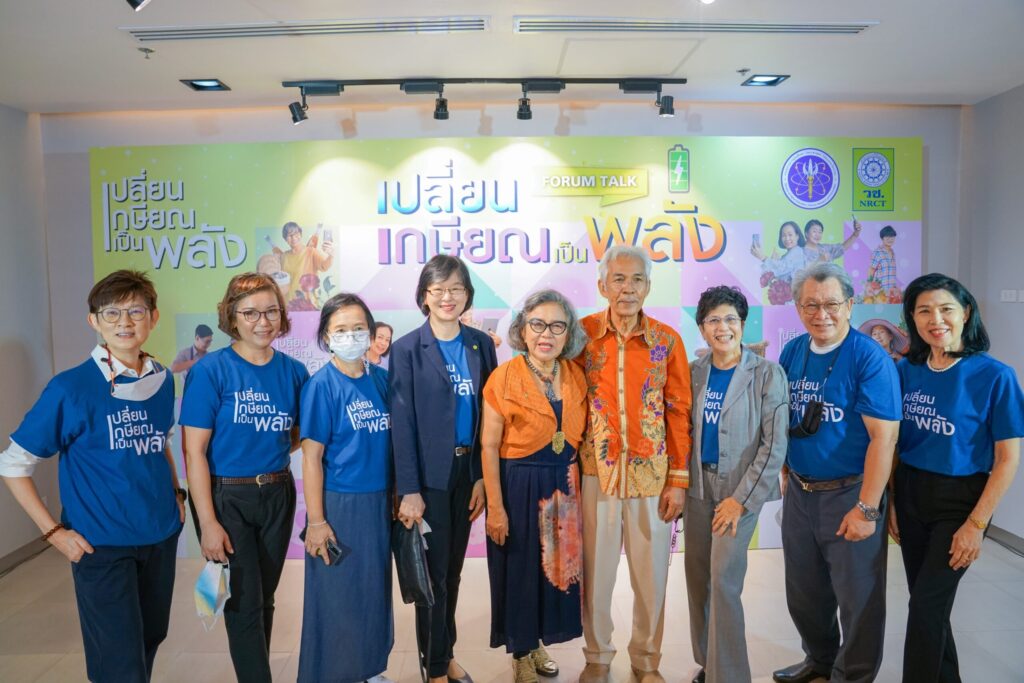
The Ready Senior Project is an online platform that includes a learning space for gaining technology skills as well as health-related and caregiving skills. This university-based project seeks to empower older people to be economically self-reliant, have a good quality of life, and reduce the burden on healthcare systems as Thailand’s population continues to age.
Memory Home
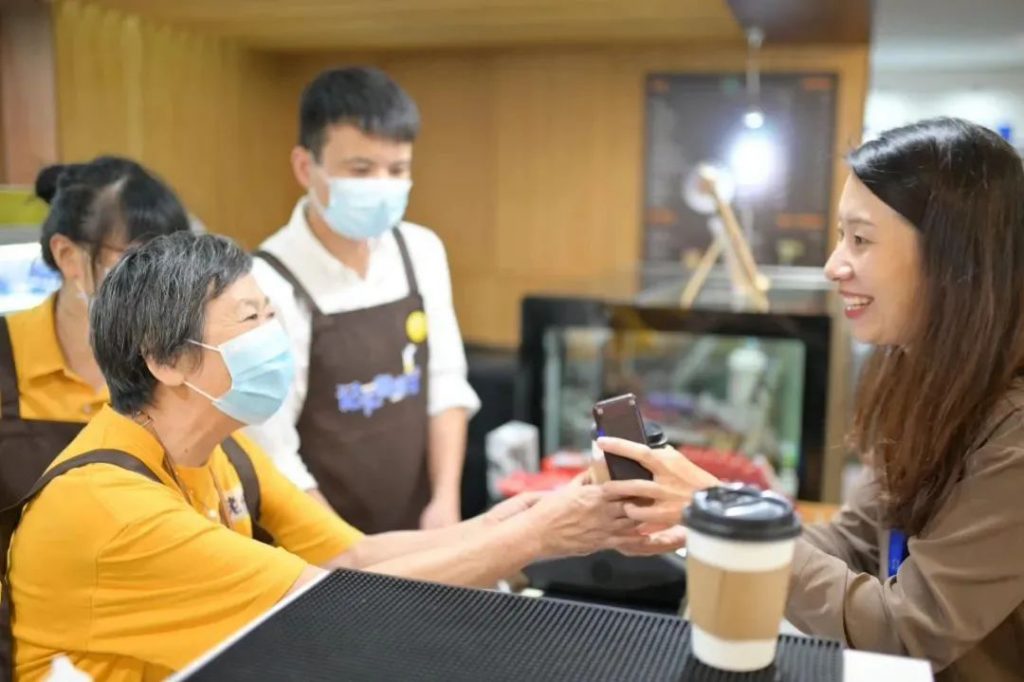
Shanghai Jinmei Care for the Elderly established Memory Homes to support the city’s growing elderly population. It is a community-based space where social workers provide those with dementia and their families with professional support. These homes also provide educational programs, preventive activities, cognitive function assessments, and support for caregivers.
Odekake Rehabilitation Initiative to Promote Outings for Older People and Commercial Revitalization
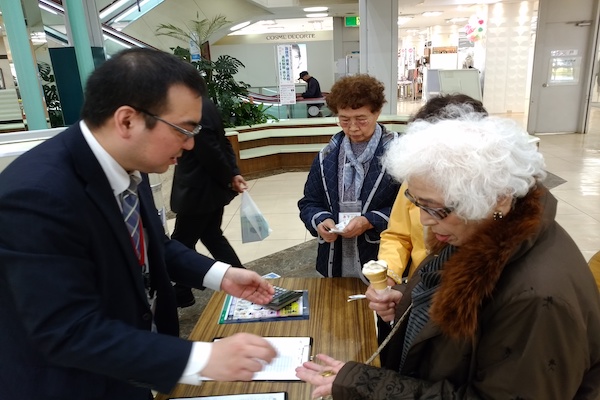
Odekake (Outing) Rehabilitation is an original healthcare project mainly targeting older persons or those who require care and support. It combines the concept of “shopping, dining, and recreation” together with “activity, sports, and interaction” to create a comprehensive form of rehabilitation while also contributing to the local economy.
WheeLog!—An Accessibility Map Application Created by Everyone
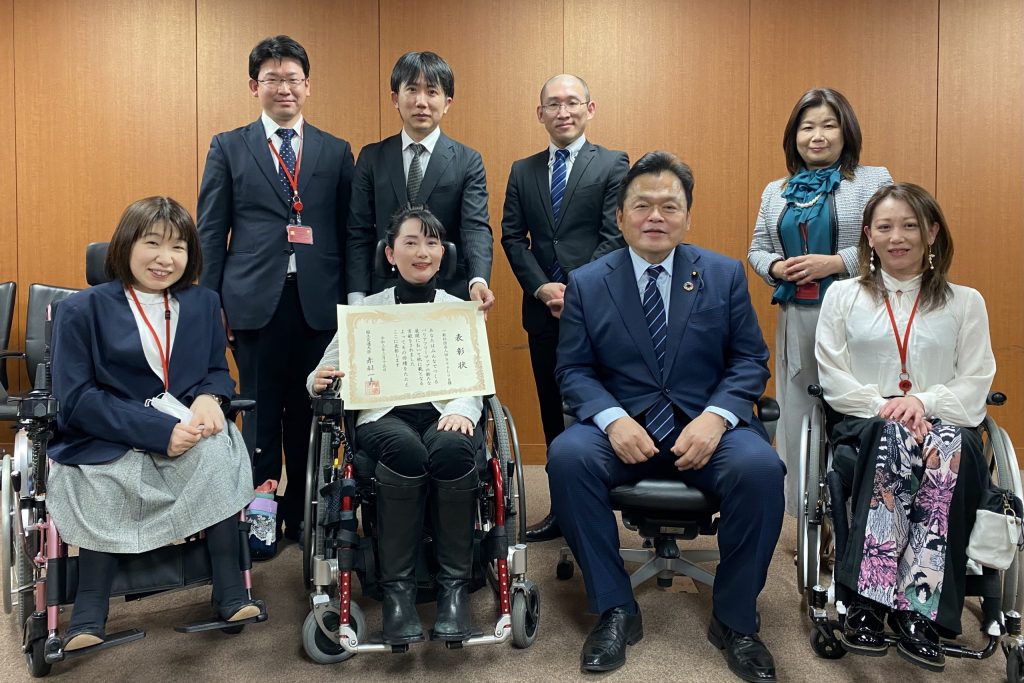
WheeLog!, an app for cellphones and computers, helps wheelchair users access barrier-free information about public spaces in Japan. It’s a crowdsourced map showing the actual routes taken by wheelchair users. The app aims to create an inclusive society by organizing city strolling events, where participants experience using a wheelchair.

